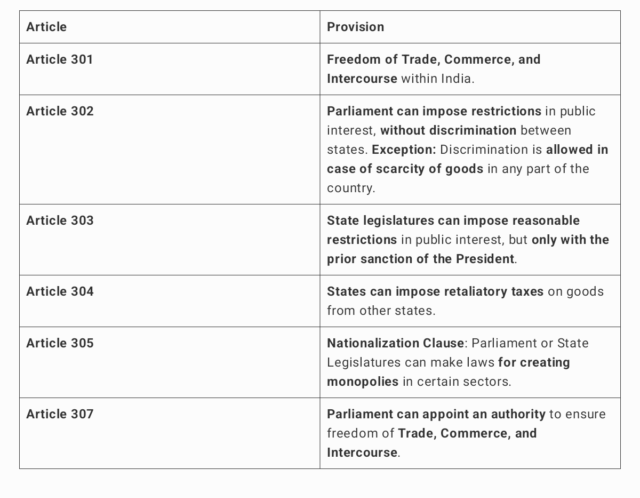Inter-State Water Disputes
- Article 262: Parliament enacted:
- River Boards Act, 1956
- Inter-State Water Disputes (ISWD) Act, 1956
- Under both Acts:
- Central Government (not Parliament) establishes Boards/Tribunals.
- Decision of Tribunals is final and binding.
- River Boards are established only on request of concerned states.
- Till now, 8 Inter-State Water Dispute Tribunals (ISWDT) have been constituted.
Inter-State Council (ISC)
- Article 263: President can establish it if satisfied that public interest will be served.
- Not a permanent constitutional body (formed by Presidential Order).
- Duties (as per Article 263):
- Inter-state disputes
- Centre-State common interests
- Better coordination of policy and action
- Functions of ISC are complementary to Supreme Court’s jurisdiction under Article 131 (can handle both legal and non-legal disputes).
- Established in 1990 on Sarkaria Commission’s recommendation via Presidential Order.
Composition of ISC
- Prime Minister (Chairperson)
- Chief Ministers of all States
- Administrators of UTs (without Assemblies)
- Governors of States under President’s Rule
- Six Cabinet Ministers (including Home Minister) nominated by the PM
Important Notes:
- ISC has Functions (2) and (3) above, but not function (1) (Inter-State Disputes).
- Meetings: Held three times a year.
- Standing Committee:
- Chairperson: Union Home Minister.
- Members: 5 Union Ministers + 9 Chief Ministers.
North Eastern Council (NEC)
- Statutory Body (NEC Act, 1971).
- Sikkim added in 2002.
Composition
- Chairperson: Union Home Minister.
- Vice Chairperson: Minister of State (MoS) for Ministry of Development of North Eastern Region (MoDoNER).
- Members:
- Governors + Chief Ministers of all 8 North Eastern states.
- Three members nominated by the President.
Public Acts, Records, and Judicial Proceedings
- Article 261: “Full Faith and Credit Clause”
- Public Acts = Legislative + Executive Acts.
- Records = Any record made by a public servant.
- Judicial Proceedings:
- Orders of civil courts are enforceable throughout India.
- Criminal judgments are NOT covered under this provision.
Inter-State Trade and Commerce

Zonal Councils
- Statutory Body (States Reorganisation Act, 1956).
- No fixed timeframe for meetings—held as per Chairman’s decision.
Composition
- Union Home Minister (Chairperson).
- Chief Ministers of all States in the Zone + Administrators of UTs.
- Two other ministers from each state in the zone.
Associated Members
- NITI Aayog nominee.
- State Chief Secretary.
- Development Commissioner of each state.